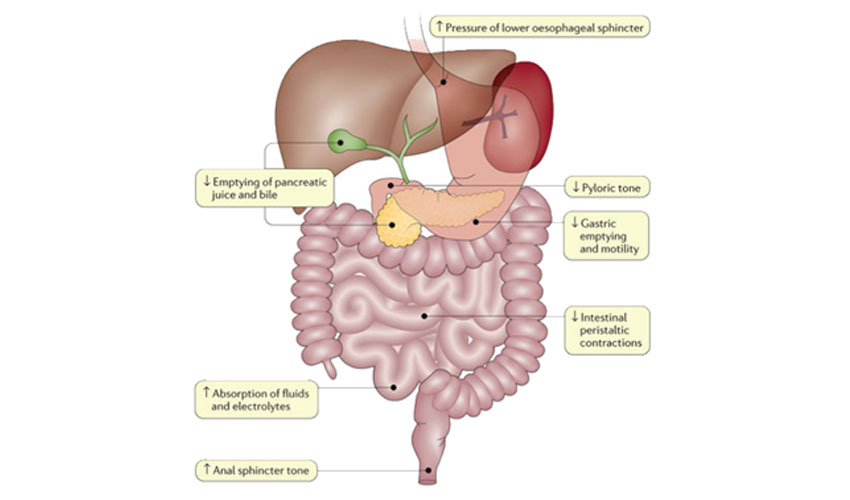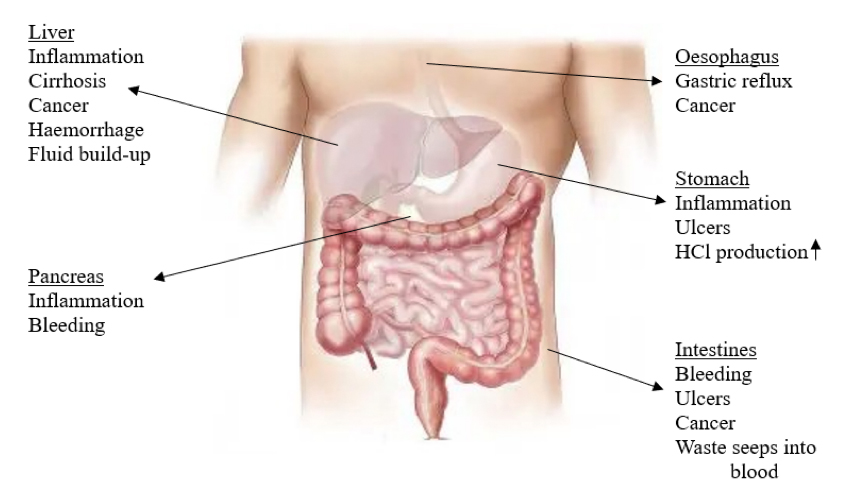While the devastating effects of substance abuse on mental health are widely acknowledged, the intricate toll it takes on the gastrointestinal (GI) system often remains in the shadows. In this blog, we will shine a light on the lesser-known consequences of substance abuse, delving into how various substances wreak havoc on the delicate balance of the digestive tract.
The Alarming Impact of Alcohol:
Alcohol, a socially accepted indulgence for many, becomes a silent assailant within the GI system when misused or abused. The liver, a vital organ for digestion and detoxification, takes a severe beating. Excessive alcohol consumption leads to alcoholic liver disease, a condition characterized by inflammation and scarring, impairing the liver’s ability to function optimally. This domino effect can disrupt the processing of nutrients, leading to malnutrition and a compromised immune system.
Stimulants: The Chaotic Rollercoaster of GI Function:
Stimulants, such as cocaine and amphetamines, send the GI system on a turbulent ride. These substances disrupt the delicate balance of digestion and nutrient absorption, by vastly reducing the blood supply to the GI tract. The lack of sufficient blood flow also causes cramps and irritation in the tract. The stimulant-induced rollercoaster leads to erratic highs and lows in GI function, impacting overall health. From decreased appetite to malabsorption issues, the toll on the digestive system can be profound, contributing to a range of health complications.
Opioids and the Silent Struggle in the Gut:
Prescribed for pain relief, opioids have an unintended consequence on the GI system, manifesting as opioid-induced constipation. These powerful painkillers slow down the movement of the bowels, causing constipation that can become chronic. As individuals grapple with pain, they find themselves facing an additional challenge: the discomfort and health risks associated with compromised bowel function.

The Smoking Gun: Peptic Ulcers and Tobacco:
While the detrimental effects of smoking on lung health are well-known, its impact on the GI system, particularly the stomach, is often overlooked. Smoking is a significant risk factor for the development of peptic ulcers. Nicotine, a key component of cigarettes, constricts blood vessels, compromising blood flow to the stomach lining and leading to increased production of stomach acid. This hostile environment sets the stage for the formation of painful ulcers, introducing another layer to the health risks associated with smoking.
The gastrointestinal consequences of substance abuse form a complex web that intertwines with the broader health implications of addiction. Understanding and acknowledging these effects are crucial for a comprehensive approach to substance abuse treatment and prevention. As we shed light on the hidden battle within the GI system, we hope to foster greater awareness and encourage a more holistic perspective on the impact of substance abuse. Addressing the gastrointestinal consequences is not only a matter of digestive health but a critical component of the overall well-being of individuals navigating the challenging terrain of addiction.

